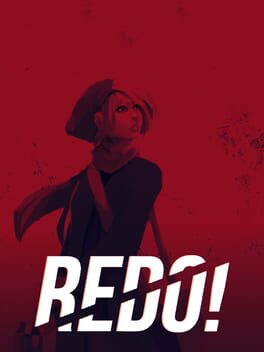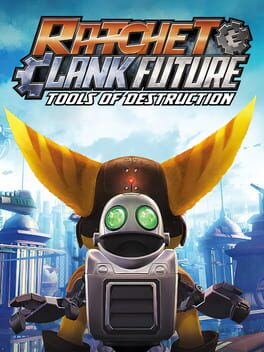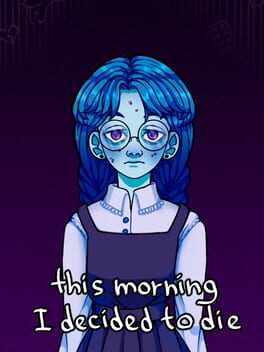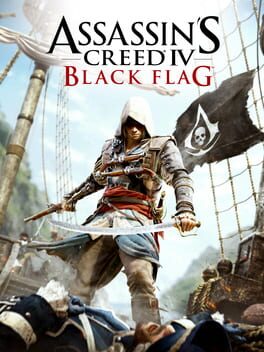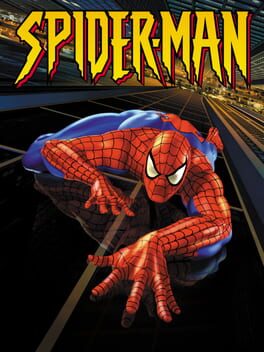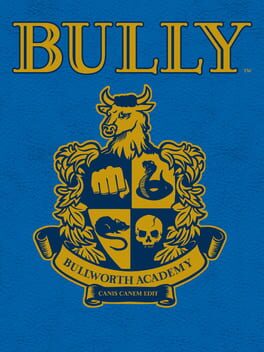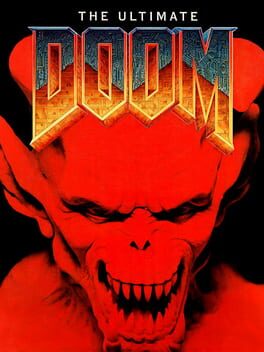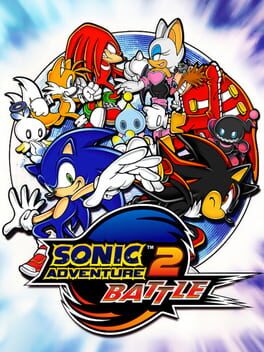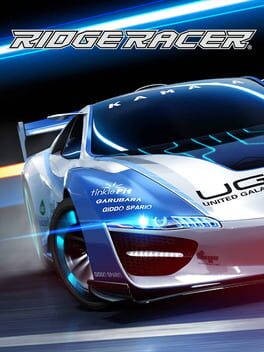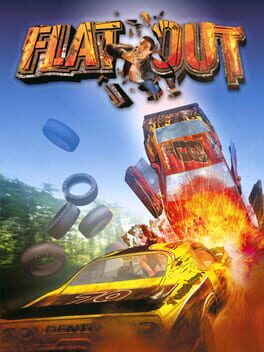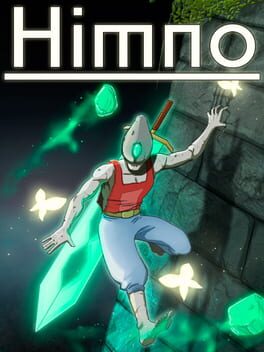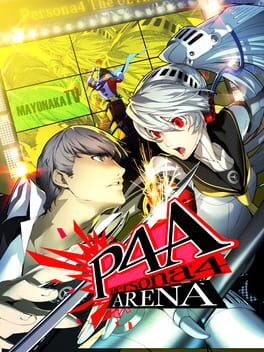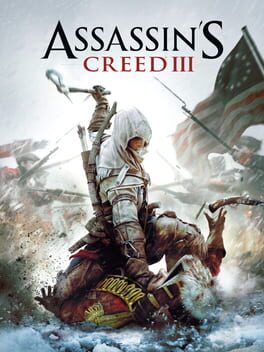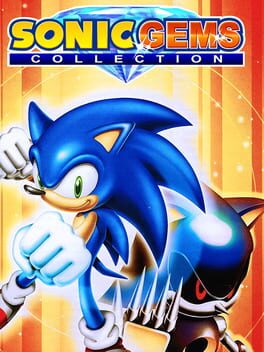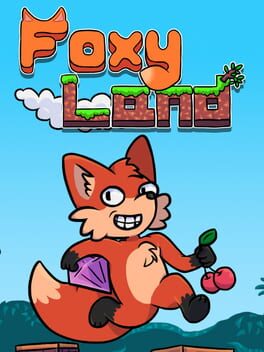IriidaV
2019
Played via the DRM-free itch.io release on Windows 11 (Gigabyte B560 HD3, i7-11700 @ 2.5GHz, 16GB DDR4 RAM, Nvidia GeForce RTX 3070).
I should probably preface this review by stating my experience with metroidvanias is rather minimal - I've put a fair few hours into the original Metroid whilst never being able to finish it (the lengthy rooms and lack of map feels near intentional to waste my time) but haven't touched a Castlevania outside of the franchise's original incarnation as an action platformer (OG, Bloodlines).
So it always seems to be the indie metroidvanias that hold my attention longer, and while Redo! seems to borrow equally from the genre as well as survival horror, it's a solid title, clocking in at just under a 4 hour experience if your goal is the ending.
I found movement to feel limiting at first (the other reviewer isn't entirely wrong about the jump) but finding that the level design is built with it all in mind made me relax into the flow of the game easier. Enemy design and item placement felt satisfying to me, easily encouraging the "come back later if you feel overwhelmed" feeling whilst not being above allowing the player to cheese through some areas if they're smart with rolls, weapon usage and health.
The art style and soundtrack were the personal standouts however - aesthetically it feels similar to 2012 game Lone Survivor at first but where that game planted it's feet firmly in the disturbing, Redo! isn't afraid to go fantastical with enemy and world designs. The soundtrack is more of a soundscape though and whilst there's not many in the way of "bangers" here it very much supports the art's strengths and lends itself to keeping you on edge rather than pumped up.
Overall I enjoyed my time with this game - I don't doubt that it could be better in some aspects and I'm looking forward to the developer's follow-up, Sessions, but for Redo!'s length and cost I was thoroughly pleased with my end experience.
I should probably preface this review by stating my experience with metroidvanias is rather minimal - I've put a fair few hours into the original Metroid whilst never being able to finish it (the lengthy rooms and lack of map feels near intentional to waste my time) but haven't touched a Castlevania outside of the franchise's original incarnation as an action platformer (OG, Bloodlines).
So it always seems to be the indie metroidvanias that hold my attention longer, and while Redo! seems to borrow equally from the genre as well as survival horror, it's a solid title, clocking in at just under a 4 hour experience if your goal is the ending.
I found movement to feel limiting at first (the other reviewer isn't entirely wrong about the jump) but finding that the level design is built with it all in mind made me relax into the flow of the game easier. Enemy design and item placement felt satisfying to me, easily encouraging the "come back later if you feel overwhelmed" feeling whilst not being above allowing the player to cheese through some areas if they're smart with rolls, weapon usage and health.
The art style and soundtrack were the personal standouts however - aesthetically it feels similar to 2012 game Lone Survivor at first but where that game planted it's feet firmly in the disturbing, Redo! isn't afraid to go fantastical with enemy and world designs. The soundtrack is more of a soundscape though and whilst there's not many in the way of "bangers" here it very much supports the art's strengths and lends itself to keeping you on edge rather than pumped up.
Overall I enjoyed my time with this game - I don't doubt that it could be better in some aspects and I'm looking forward to the developer's follow-up, Sessions, but for Redo!'s length and cost I was thoroughly pleased with my end experience.
Physical EU version played on a PlayStation 3 Super Slim.
I think there are a lot of decent choices made in this game - the narrative change to focus on Ratchet's (& Clank's?) origins feel wonky and sometimes more than a little forced but it adds some decent drama and seriousness that the prior 2 games sorely lacked. While new characters of Talwyn and her robot companions feels redundant due to prior games having these exact same archetypal characters with different designs and names, Qwark at least shows signs of gaining a little pathos whilst the inclusion of the pirate robots made this game far more enjoyable during moments of dryness. The gameplay is a vast improvement over Up Your Arsenal's however, featuring a strong focus on actual platforming again and maintaining that balance that the first two games had, albeit building on the strength of the weapon levelling that was such a core focus of Arsenal and Deadlocked.
It does all start to feel stale in the mid game though; whilst character models and animation quality get a little bump not much is on display to demonstrate the power of a new console generation. Art direction and level design feels like remixes of prior games and the wholly uninspired score has me certain I've heard most of the soundtrack before, either in prior entries or from Pirates of the Carribean. The lack of subtitles during gameplay was frustrating since what I was able to hear seemed to flesh out the narrative and character motivations but I genuinely feel I was only able to make out a quarter of it, whilst nearly every cutscene had audio skips, causing the dialogue to fall behind the animations and run the risk of not even finishing before gameplay came back. The lighting in some levels also made playing a bit of a chore since there were plenty of areas in the late game I just couldn't see properly and the lack of an in-game brightness setting exacerbated my issues.
Tools of Destruction is the fifth game in as many years for the Ratchet & Clank series and you can tell. The game design as a whole feels tired and while Insomniac can still deliver hilsrious jokes and seems to take a fresh new direction with the story it feels like one that could make or break older fans' enjoyment of the series. We've had 4 games now of not knowing Ratchet's origin and the possibility of making him some sort of prophesied son of a god-like species (whilst potentially retconning Clank's origin entirely) has red flags all over it. Still, if you haven't played an action adenture platformer in a while you can do a whole lot worse than this game.
I think there are a lot of decent choices made in this game - the narrative change to focus on Ratchet's (& Clank's?) origins feel wonky and sometimes more than a little forced but it adds some decent drama and seriousness that the prior 2 games sorely lacked. While new characters of Talwyn and her robot companions feels redundant due to prior games having these exact same archetypal characters with different designs and names, Qwark at least shows signs of gaining a little pathos whilst the inclusion of the pirate robots made this game far more enjoyable during moments of dryness. The gameplay is a vast improvement over Up Your Arsenal's however, featuring a strong focus on actual platforming again and maintaining that balance that the first two games had, albeit building on the strength of the weapon levelling that was such a core focus of Arsenal and Deadlocked.
It does all start to feel stale in the mid game though; whilst character models and animation quality get a little bump not much is on display to demonstrate the power of a new console generation. Art direction and level design feels like remixes of prior games and the wholly uninspired score has me certain I've heard most of the soundtrack before, either in prior entries or from Pirates of the Carribean. The lack of subtitles during gameplay was frustrating since what I was able to hear seemed to flesh out the narrative and character motivations but I genuinely feel I was only able to make out a quarter of it, whilst nearly every cutscene had audio skips, causing the dialogue to fall behind the animations and run the risk of not even finishing before gameplay came back. The lighting in some levels also made playing a bit of a chore since there were plenty of areas in the late game I just couldn't see properly and the lack of an in-game brightness setting exacerbated my issues.
Tools of Destruction is the fifth game in as many years for the Ratchet & Clank series and you can tell. The game design as a whole feels tired and while Insomniac can still deliver hilsrious jokes and seems to take a fresh new direction with the story it feels like one that could make or break older fans' enjoyment of the series. We've had 4 games now of not knowing Ratchet's origin and the possibility of making him some sort of prophesied son of a god-like species (whilst potentially retconning Clank's origin entirely) has red flags all over it. Still, if you haven't played an action adenture platformer in a while you can do a whole lot worse than this game.
For the length and narrative of this VN, it's hard to come away feeling you didn't get an experience worth the price of admission. It's obviously about a subject that not everyone's going to connect with or even necessarily find comfortable exploring, but it's evidently a labour close to ctc's own experiences and in that I felt it was told in a raw but compelling way. Characters can feel two-dimensional at first, but giving the game a chance of multiple playthroughs can really flesh them further and the writing that either progressively spirals or gets more emotionally charged, path depending, is all spurred along by a wonderfully oppressive soundscape.
Looking forward to any and all future work from ctc, the endings were worth finding
Looking forward to any and all future work from ctc, the endings were worth finding
Played on an original Xbox 360 model.
It took me way too long into my playthrough of this game to appreciate anyhing it was trying to do - Edward as a protagonist is aimless until the last act of the story, the gameplay acts as an inverse of AC3's with more focus on ship sailing than actual on-the-ground assassin-ing, and the modern day plot is embroiled in a weird meta commentary about Ubisoft's own development of the franchise through the lens of being a front for Abstergo. Whenever I hear people talking about this game it's always heralded as the "best" entry in the series with much bemoaning of how the franchise has since fallen in quality and all I can really respond with is "really?" Black Flag, with it's parkour and general movement hat's further simplified from AC3's dumbed-down mechanics and yet still remains as dodgy and imprecise as the original game's? Black Flag with gameplay and mission markers and side activities and hidden trinkets bloated to being over a 40 hour game with the narrative of a 10 hour experience? Black Flag with its cosmetics and upgrades locked behind mandatory online and multiplayer content? That Black Flag? Because if this really is the peak of the AC franchise then jesus wept I'm not even sure if I want to bother continuing with it.
Ok, positives - the art direction is really fucking good. I've enjoyed the art style of all the previous mainline entries but Black Flag really does manage to capture the clear blue oceans, golden beaches and scummy shanty towns of a romanticised carribean amidst the golden age of piracy. Characters all look pretty good too and I had a much better time being able to identify individuals here than I did in AC3's ocean of bland-looking, wrinkled white men in their 40s. The music too is more defined than the last entry, with many tunes becoming recogniseable over the course of the game, and while I never truly enjoyed sailing the high seas (7/10, too much water, etc) I can certainly recognise how all of these points coming together could provide a really great vibe for people to relax into.
Unfortunately I didn't fall into that camp - I grew to appreciate the ship segments in AC3 well enough towards the end but having that be the main focus here never grew on me. It's not what I enjoy these games for and combined with the other multitude of problems I listed prior resulted in a frustrating and boring experience for the majority of my time here.
I could forgive some of this if the focus was upon the assassin/templar conflict but it took a large back seat to Edward's journey, and that felt like a slog at the best of times to get to the (admittedly satisfying) inevitable conclusion to his arc. Too much of the story just has him bugger about, dead set on chasing a vague goal of riches despite him offering really insightful monologues about how it's all kinda worthless and recognising his friends are slowly dying. This could have worked as a fine story but it's so bloated in the middle and the ending remains vague as to if Edward even joins the brotherhood or not. Genuinely the best part was the drunken sequence of everyone shouting at him but this came so late in my playthrough that I was actively just trying to finish the damn game and it was a bit soured by that point.
The modern portion is similarly mixed for me - it takes far too long to realise just what exactly Ubisoft were trying to do here and really the entire scope of it all only becomes clear at the very end when you're finally able to access all the computer files previously locked off to you. The narrative of the Sage and Juno weaving into it felt kinda cool but I was surprised they wrapped all those ideas up here instead of allowing them to be left open for the next installment. Sean and Rebecca's return was fun and satisfying and the audio logs from Desmond and the original Subjects from the 80s were really cool to this guy who's always genuinely enjoyed the modern portions, but like I said, it just takes too long to actually see it all.
Ultimately, Black Flag is a step back for me. I can recognise why a lot of people really enjoyed this game with the AAA gaming scene really lacking in strong pirate games but those are half the reasons I just couldn't gel with this one. The other half is purely down to the game feeling really buggy to play dispite this being the 6th entry of the series and the bloated nature of it's narrative and activities dragging the pacing down.
It took me way too long into my playthrough of this game to appreciate anyhing it was trying to do - Edward as a protagonist is aimless until the last act of the story, the gameplay acts as an inverse of AC3's with more focus on ship sailing than actual on-the-ground assassin-ing, and the modern day plot is embroiled in a weird meta commentary about Ubisoft's own development of the franchise through the lens of being a front for Abstergo. Whenever I hear people talking about this game it's always heralded as the "best" entry in the series with much bemoaning of how the franchise has since fallen in quality and all I can really respond with is "really?" Black Flag, with it's parkour and general movement hat's further simplified from AC3's dumbed-down mechanics and yet still remains as dodgy and imprecise as the original game's? Black Flag with gameplay and mission markers and side activities and hidden trinkets bloated to being over a 40 hour game with the narrative of a 10 hour experience? Black Flag with its cosmetics and upgrades locked behind mandatory online and multiplayer content? That Black Flag? Because if this really is the peak of the AC franchise then jesus wept I'm not even sure if I want to bother continuing with it.
Ok, positives - the art direction is really fucking good. I've enjoyed the art style of all the previous mainline entries but Black Flag really does manage to capture the clear blue oceans, golden beaches and scummy shanty towns of a romanticised carribean amidst the golden age of piracy. Characters all look pretty good too and I had a much better time being able to identify individuals here than I did in AC3's ocean of bland-looking, wrinkled white men in their 40s. The music too is more defined than the last entry, with many tunes becoming recogniseable over the course of the game, and while I never truly enjoyed sailing the high seas (7/10, too much water, etc) I can certainly recognise how all of these points coming together could provide a really great vibe for people to relax into.
Unfortunately I didn't fall into that camp - I grew to appreciate the ship segments in AC3 well enough towards the end but having that be the main focus here never grew on me. It's not what I enjoy these games for and combined with the other multitude of problems I listed prior resulted in a frustrating and boring experience for the majority of my time here.
I could forgive some of this if the focus was upon the assassin/templar conflict but it took a large back seat to Edward's journey, and that felt like a slog at the best of times to get to the (admittedly satisfying) inevitable conclusion to his arc. Too much of the story just has him bugger about, dead set on chasing a vague goal of riches despite him offering really insightful monologues about how it's all kinda worthless and recognising his friends are slowly dying. This could have worked as a fine story but it's so bloated in the middle and the ending remains vague as to if Edward even joins the brotherhood or not. Genuinely the best part was the drunken sequence of everyone shouting at him but this came so late in my playthrough that I was actively just trying to finish the damn game and it was a bit soured by that point.
The modern portion is similarly mixed for me - it takes far too long to realise just what exactly Ubisoft were trying to do here and really the entire scope of it all only becomes clear at the very end when you're finally able to access all the computer files previously locked off to you. The narrative of the Sage and Juno weaving into it felt kinda cool but I was surprised they wrapped all those ideas up here instead of allowing them to be left open for the next installment. Sean and Rebecca's return was fun and satisfying and the audio logs from Desmond and the original Subjects from the 80s were really cool to this guy who's always genuinely enjoyed the modern portions, but like I said, it just takes too long to actually see it all.
Ultimately, Black Flag is a step back for me. I can recognise why a lot of people really enjoyed this game with the AAA gaming scene really lacking in strong pirate games but those are half the reasons I just couldn't gel with this one. The other half is purely down to the game feeling really buggy to play dispite this being the 6th entry of the series and the bloated nature of it's narrative and activities dragging the pacing down.
2000
Before Marvel's Spider-Man for PS4, before Spider-Man: Web of Shadows, before Spider-Man 2 for PS2, this was the definitive Spider-Man game. It's a little rusty with some clunk controls and is definitely a product from the days before open-world video games. But if you were a fan of the 90s animated series or just a fan of the character in general, this was (and still is) a great pick up.
2006
It's always cool to see a developer switch up their game formula a little, and in the wake of the PlayStation 2 GTA trilogy, Bully is a unique experience. The way in which the GTA gameloop is carried over to a school setting feels surprisingly effortless but just as entertaining, if not moreso in some places.
1995
Thy Flesh Consumed played via Steam on a Lenovo Y50-70.
As it stands, I am simply not good enough to get anywhere with Thy Flesh Consumed. I had a great time with the base episodes in The Ultimate Doom, and although I would get stuck for a while in those levels, E4M1 is just not designed with enough entertainment for me to want to continue like I had intially. There's too little ammo, too little health, and way too many enemies able to bring you down in seconds.
Maybe I'll tackle this again at some point but I'm fine admitting I simply cannot penetrate this extra set of missions.
As it stands, I am simply not good enough to get anywhere with Thy Flesh Consumed. I had a great time with the base episodes in The Ultimate Doom, and although I would get stuck for a while in those levels, E4M1 is just not designed with enough entertainment for me to want to continue like I had intially. There's too little ammo, too little health, and way too many enemies able to bring you down in seconds.
Maybe I'll tackle this again at some point but I'm fine admitting I simply cannot penetrate this extra set of missions.
The ports just get worse and worse as they release more and more based on the previouss iteration. It expands very little upon the Dreamcast version, and the main issues that were present in the original - namely the bad audio mixing and sensitive controls - are still here. The improvements to the art aren't immediately noticeable either but it's at least a better Gamecube port than what the original Sonic Adventure got.
2011
EU release played on a PS Vita 1000 series model.
Sadly the version with all the DLC feels like the proper game - 3 tracks with no real incentive to race outside of leaderboards (and trophies if that's your thing) just doesn't cut it and it feels like a rushed port of a mobile game without the pay walls. At least the music from previous games is available as free DLC but even the music in this game is pretty good after a few listens.
It does have an overall solid base for a drift/boost racing game but outside of racing ghosts and other players to offer the occassional challenge it's just boring.
Skip this and stick to the Ridge Racers release on PSP instead.
Sadly the version with all the DLC feels like the proper game - 3 tracks with no real incentive to race outside of leaderboards (and trophies if that's your thing) just doesn't cut it and it feels like a rushed port of a mobile game without the pay walls. At least the music from previous games is available as free DLC but even the music in this game is pretty good after a few listens.
It does have an overall solid base for a drift/boost racing game but outside of racing ghosts and other players to offer the occassional challenge it's just boring.
Skip this and stick to the Ridge Racers release on PSP instead.
2004
EU release played via Steam on a Lenovo Y50-70.
I've played FlatOut on and off for a number of years. It's a decent racing game with the gimmick of crashing causing your player character to go careening out the windshield. It's a fun gimmick, and the races are admittedly challenging with an entertaining selection of side games that go out of their way to force you into windshield-ejecting situations. It also offers a fairly deep but simple upgrade system for your cars but nothing that feels particularly groundbeaking.
All in all, FlatOut is fine. It's never been my main racing game of choice and despite playing this game sporadically for a fair number of years I've never gotten close to beating all the races but I feel at this point I've experienced enough without needing to get to any sort of endgame.
I've played FlatOut on and off for a number of years. It's a decent racing game with the gimmick of crashing causing your player character to go careening out the windshield. It's a fun gimmick, and the races are admittedly challenging with an entertaining selection of side games that go out of their way to force you into windshield-ejecting situations. It also offers a fairly deep but simple upgrade system for your cars but nothing that feels particularly groundbeaking.
All in all, FlatOut is fine. It's never been my main racing game of choice and despite playing this game sporadically for a fair number of years I've never gotten close to beating all the races but I feel at this point I've experienced enough without needing to get to any sort of endgame.
2019
Played on a PlayStation Vita OLED model.
Reading other reviews I can see how this is a relaxing game - mastering the platforming within procedurally-generated levels whilst collecting little colorful sprites to chill music resulted in me playing a lot longer than I thought I had and for that I can give it props.
However this was a purchase during a sale, the kind that you add to the cart because it's cheap and an hour of fun is better than nothing, and I had no idea what I was in for when I booted it up. I played this game for a total of 70 minutes and half of that time was figuring out what the hell I was supposed to be doing - there's no indication of a goal or even an aim to the game upon loading and a lot of the gameplay felt like pointless busywork until I realised I was supposed to be interacting with doors and proceeding to further levels.
It didn't help that the performance on the Vita was so piss-poor either with what I can only assume being a memory leak of some kind completely tanking the performance of this very simple (albeit nice) looking game resulting in single digit framerates and unresponsive controls, requiring a complete reboot to function properly again.
I've been avoiding achievement collecting lately when playing games but when I consulted my earned list to try and get a better understanding of what I was supposed to be aiming for and realised I was one trophy away from the platinum it was quite surprising. This isn't a bad game and maybe if I played the PC original I'd even be able to relax and vibe with it but this port should be avoided.
Reading other reviews I can see how this is a relaxing game - mastering the platforming within procedurally-generated levels whilst collecting little colorful sprites to chill music resulted in me playing a lot longer than I thought I had and for that I can give it props.
However this was a purchase during a sale, the kind that you add to the cart because it's cheap and an hour of fun is better than nothing, and I had no idea what I was in for when I booted it up. I played this game for a total of 70 minutes and half of that time was figuring out what the hell I was supposed to be doing - there's no indication of a goal or even an aim to the game upon loading and a lot of the gameplay felt like pointless busywork until I realised I was supposed to be interacting with doors and proceeding to further levels.
It didn't help that the performance on the Vita was so piss-poor either with what I can only assume being a memory leak of some kind completely tanking the performance of this very simple (albeit nice) looking game resulting in single digit framerates and unresponsive controls, requiring a complete reboot to function properly again.
I've been avoiding achievement collecting lately when playing games but when I consulted my earned list to try and get a better understanding of what I was supposed to be aiming for and realised I was one trophy away from the platinum it was quite surprising. This isn't a bad game and maybe if I played the PC original I'd even be able to relax and vibe with it but this port should be avoided.
2012
EU copy played on a PlayStation 3 Super Slim.
Persona 4 Arena is an enjoyable fighting game experience. I'll admit the extent of my knowledge of the genre begins and ends with Tekken since I'm usually hesitant to learn new button layouts and systems, but P4A won me over in the end. It's use of characters' personas within fights was satisfying with a multitude of techniques like specials and breaks at your disposal, and combat feels incredibly simple at first with the possibility of a deep range of combos.
However I had the great misfortune to start my P4A experience with the Story Mode - a mode I assumed would be similar to any other fighting game's "story" mode at that time with maybe a line of dialogue between fights and an animated ending. Instead what I was greeted with was a way too long visual novel that spent the majority of its time showing off how much time and effort the scriptwriters had put into it, with an occasional 30 seconds of fighting game content every 10-15 minutes.
Now I enjoyed my time with Persona 4, and it's probably one of a handful of turn-based RPGs that I've actually finished, but the lengthy story scenes in that game ultimately served the design and gameplay. It was also rather intermittent, and was usually the reward after completing a dungeon or reaching a new relationship level. P4A instead bogs the gameplay down with its story, practically drowning it, so that when you do finally get to a match you've completely forgotten what your character's moveset is. It's a problem that the other Persona spin off games have too I've noticed, and it all seems to stem from this game thinking it needed to please RPG fans with a complex and circuitous story when all that was really needed was a flashback to sometime during P4's main plot with a retconned small-time villain or a training tournament conducted by Teddy for shits and giggles.
But that was the Story Mode, and when I finally found that the Arcade Mode was basically what I was after I was too mentally exhausted from hours of VN nonsense in a fighting game to really care. I might have also put more time into it or even had some fun if the servers were active but they're as dead as a can of spam in late 2021.
Overall Persona 4 Arena is a great fighting game with a ridiculous and needlessly lengthy story mode. What could have been a relatively fun and goofy plot feels needlessly lengthy with absolutely zero reward for putting yourself through it all. Stick to the much superior Arcade Mode when playing this game.
Persona 4 Arena is an enjoyable fighting game experience. I'll admit the extent of my knowledge of the genre begins and ends with Tekken since I'm usually hesitant to learn new button layouts and systems, but P4A won me over in the end. It's use of characters' personas within fights was satisfying with a multitude of techniques like specials and breaks at your disposal, and combat feels incredibly simple at first with the possibility of a deep range of combos.
However I had the great misfortune to start my P4A experience with the Story Mode - a mode I assumed would be similar to any other fighting game's "story" mode at that time with maybe a line of dialogue between fights and an animated ending. Instead what I was greeted with was a way too long visual novel that spent the majority of its time showing off how much time and effort the scriptwriters had put into it, with an occasional 30 seconds of fighting game content every 10-15 minutes.
Now I enjoyed my time with Persona 4, and it's probably one of a handful of turn-based RPGs that I've actually finished, but the lengthy story scenes in that game ultimately served the design and gameplay. It was also rather intermittent, and was usually the reward after completing a dungeon or reaching a new relationship level. P4A instead bogs the gameplay down with its story, practically drowning it, so that when you do finally get to a match you've completely forgotten what your character's moveset is. It's a problem that the other Persona spin off games have too I've noticed, and it all seems to stem from this game thinking it needed to please RPG fans with a complex and circuitous story when all that was really needed was a flashback to sometime during P4's main plot with a retconned small-time villain or a training tournament conducted by Teddy for shits and giggles.
But that was the Story Mode, and when I finally found that the Arcade Mode was basically what I was after I was too mentally exhausted from hours of VN nonsense in a fighting game to really care. I might have also put more time into it or even had some fun if the servers were active but they're as dead as a can of spam in late 2021.
Overall Persona 4 Arena is a great fighting game with a ridiculous and needlessly lengthy story mode. What could have been a relatively fun and goofy plot feels needlessly lengthy with absolutely zero reward for putting yourself through it all. Stick to the much superior Arcade Mode when playing this game.
2012
EU copy played via the American Saga release on a PlayStation 3 Super Slim.
I think Assassin's Creed III is by far the most frustrating game of the original Desmond era for the franchise - it attempts to introduce new gameplay elements, new characters, new settings, and all while trying to tie up a lot of plot threads the series had been toying with for 5 years. It succeeds, just, but the entire journey from start to finish in this game was a mixed bag of confusion, relaxation, and out right frustration.
First the good - I think this is by far the best the franchise has looked up to this point. The art assets coupled with technical elements such as dynamic weather and seasons bring the world of the early American colonies to life. As a huge apologist for the original AC, it felt at times like a step back to that game's world design with a lot of open wilderness to bridge the cities together, and I absolutely adored it for that.
Another positive is the music - the score takes great strides to distance itself from the three previous games of Italy and Italy-adjacent motifs and the more bombastic orchestral backing alongside some indigenous folk flute tracks and Connor's theme makes for a nice change, even if a lot of it automatically falls into the forgetful category.
It also has a lot to do, which admittedly felt extremely overwhelming at first. The first third of the game focuses on throwing the gameplay elements at you in small tutorial stages that manage to do everything in their power to discourage you from ever touching them again. I hated the hunting, I hated the ship combat, and I certainly didn't enjoy the way it tried explaining combat and specifically counters. It never does explain it's new combat system properly but taking the time to explore these other elements on your own, you might be surprised at what you find. I did learn to enjoy the ship battles in the end and am curious to see what Black Flag does to expand on the concept. Also the underground sections are definitely boring but also offer a nice spooky away time exploring old city tunnels which was kind of neat.
Now, the bad. Parkour has received an overhaul here and not for the better. Gone are the precise, if finicky movements that II, Brotherhood and Revelations had expanded upon over time in favour of a more streamlined and automated approach. There's no button presses to reach specific handhelds or fancy maneuvers you can pull off to make your movement faster - it's all just been boiled down to holding the analogue stick in the direction you want to go and it feels like a huge step back. The new tree-climbing moves are nice to see, especially in the Frontier and even in suburban areas but the overhauled movement becomes a large hindrance, often refusing you the ability to do things you know you can do and making completely wrong decisions. I know the parkour mechanic has always been a bit iffy in these games but I would expect a change in how they handle to be accompanied with improved maneuverability, not keep it at the level it was before, but now with all your options taken away.
The story frankly is a bit of a mess. Maybe it wouldn't feel quite so bad in literally any other medium, but placed in video game that has a million and one activities screaming for your attention and thus drawing the plot beyond stretching point was more than a little frustrating to witness. I enjoyed the prologue and the character of Haytham but it simultaneously rushed through the plot beats whilst feeling like it dragged. By the time you control Connor you're feeling a bit exhausted alongside the narrative whiplash of the prologue's twist and it doesn't make for a good mix.
Let's talk about Connor for a moment because his character is beyond disappointing. He has absolutely zero personality in all the main story sections and you could easily boil his character down to his two favourite quotes "what would you have me do" and "where is Charles Lee". He displays no emotion other than anger or indifference at any given time and due to the fact that no other character besides Haythem is remotely interesting, the story just becomes a blend of boring faces, boring voices and a monotonous sequence of sneaking to questioning to stabbing to sneaking again. No-one stands out, not one performance in this game aims to try and grab your attention besides the modern characters and that is a damn shame. Connor only becomes interesting through the lense of the Homestead missions, helping settlers build a community focussed on helping people through unique and entertaining problems. His frustrating indifference even becomes comedic at times in these sections and the game almost endeared me to him here.
For once in an Assassin's Creed game it's actually the modern plot that steals the show. Having the break from it in Revelations turned out to be a god send in a way, giving us a break from the fairly uninteresting scenes of its predecessors so that III could deliver an engaging narrative with fun gameplay sections. For once you can play as Desmond on Assassin missions, going on a bit of a globe-trotting adventure between his Animus stints in America. The characters are also fun to follow, with a nice fleshing out of Shaun, Rebecca and Desmond's father. It's incredibly satisfying to see as someone who started following this series in 2007 which makes it all the shame that the ending completely misses the mark on any sort of emotionally satisfying goodbye to Desmond and the gang.
I think that's everything I wanted to say about this game - it has it's moments and if you want a game to turn your brain off fulfilling mission markers and such then it's a nice relaxing game to play while you have a podcast or something in the background. But as a narrative, mechanical and emotional culmination of the series up to that point, it disappoints on nearly every level. There are times when I thought this could have been my favourite game in the franchise up until the game whirled its head and denied me that pleasure with stupid mission requirements, bugs, and a general unpolished attitude. But the fact that both Connor and Desmond's stories end in such emotionally unsatisfying ways with "...eh?" final cutscenes for both was the ultimate disappointment.
I think Assassin's Creed III is by far the most frustrating game of the original Desmond era for the franchise - it attempts to introduce new gameplay elements, new characters, new settings, and all while trying to tie up a lot of plot threads the series had been toying with for 5 years. It succeeds, just, but the entire journey from start to finish in this game was a mixed bag of confusion, relaxation, and out right frustration.
First the good - I think this is by far the best the franchise has looked up to this point. The art assets coupled with technical elements such as dynamic weather and seasons bring the world of the early American colonies to life. As a huge apologist for the original AC, it felt at times like a step back to that game's world design with a lot of open wilderness to bridge the cities together, and I absolutely adored it for that.
Another positive is the music - the score takes great strides to distance itself from the three previous games of Italy and Italy-adjacent motifs and the more bombastic orchestral backing alongside some indigenous folk flute tracks and Connor's theme makes for a nice change, even if a lot of it automatically falls into the forgetful category.
It also has a lot to do, which admittedly felt extremely overwhelming at first. The first third of the game focuses on throwing the gameplay elements at you in small tutorial stages that manage to do everything in their power to discourage you from ever touching them again. I hated the hunting, I hated the ship combat, and I certainly didn't enjoy the way it tried explaining combat and specifically counters. It never does explain it's new combat system properly but taking the time to explore these other elements on your own, you might be surprised at what you find. I did learn to enjoy the ship battles in the end and am curious to see what Black Flag does to expand on the concept. Also the underground sections are definitely boring but also offer a nice spooky away time exploring old city tunnels which was kind of neat.
Now, the bad. Parkour has received an overhaul here and not for the better. Gone are the precise, if finicky movements that II, Brotherhood and Revelations had expanded upon over time in favour of a more streamlined and automated approach. There's no button presses to reach specific handhelds or fancy maneuvers you can pull off to make your movement faster - it's all just been boiled down to holding the analogue stick in the direction you want to go and it feels like a huge step back. The new tree-climbing moves are nice to see, especially in the Frontier and even in suburban areas but the overhauled movement becomes a large hindrance, often refusing you the ability to do things you know you can do and making completely wrong decisions. I know the parkour mechanic has always been a bit iffy in these games but I would expect a change in how they handle to be accompanied with improved maneuverability, not keep it at the level it was before, but now with all your options taken away.
The story frankly is a bit of a mess. Maybe it wouldn't feel quite so bad in literally any other medium, but placed in video game that has a million and one activities screaming for your attention and thus drawing the plot beyond stretching point was more than a little frustrating to witness. I enjoyed the prologue and the character of Haytham but it simultaneously rushed through the plot beats whilst feeling like it dragged. By the time you control Connor you're feeling a bit exhausted alongside the narrative whiplash of the prologue's twist and it doesn't make for a good mix.
Let's talk about Connor for a moment because his character is beyond disappointing. He has absolutely zero personality in all the main story sections and you could easily boil his character down to his two favourite quotes "what would you have me do" and "where is Charles Lee". He displays no emotion other than anger or indifference at any given time and due to the fact that no other character besides Haythem is remotely interesting, the story just becomes a blend of boring faces, boring voices and a monotonous sequence of sneaking to questioning to stabbing to sneaking again. No-one stands out, not one performance in this game aims to try and grab your attention besides the modern characters and that is a damn shame. Connor only becomes interesting through the lense of the Homestead missions, helping settlers build a community focussed on helping people through unique and entertaining problems. His frustrating indifference even becomes comedic at times in these sections and the game almost endeared me to him here.
For once in an Assassin's Creed game it's actually the modern plot that steals the show. Having the break from it in Revelations turned out to be a god send in a way, giving us a break from the fairly uninteresting scenes of its predecessors so that III could deliver an engaging narrative with fun gameplay sections. For once you can play as Desmond on Assassin missions, going on a bit of a globe-trotting adventure between his Animus stints in America. The characters are also fun to follow, with a nice fleshing out of Shaun, Rebecca and Desmond's father. It's incredibly satisfying to see as someone who started following this series in 2007 which makes it all the shame that the ending completely misses the mark on any sort of emotionally satisfying goodbye to Desmond and the gang.
I think that's everything I wanted to say about this game - it has it's moments and if you want a game to turn your brain off fulfilling mission markers and such then it's a nice relaxing game to play while you have a podcast or something in the background. But as a narrative, mechanical and emotional culmination of the series up to that point, it disappoints on nearly every level. There are times when I thought this could have been my favourite game in the franchise up until the game whirled its head and denied me that pleasure with stupid mission requirements, bugs, and a general unpolished attitude. But the fact that both Connor and Desmond's stories end in such emotionally unsatisfying ways with "...eh?" final cutscenes for both was the ultimate disappointment.
This, accompanied with the earlier Sonic Mega Collection, made for a great way to house (nearly) all of Sonic's games prior to the Adventure duology on two discs. Admittedly, they're not the best of the series (no, you're wrong, Sonic CD is fine at best) nor are the port jobs perfect, but it was a great way to experience the rest of the hidden gems outside of SegaSonic Arcade and Sonic Jam.
2017
Played via the UK PSN release on a PlayStation Vita OLED model.
It's fine, it feels like one of those mildly infuriating Flash games from the mid 00s with overly-tight jumps and controls. The crushing blocks have an annoying feature of being insta-death when touched on the side they're crushing into, despite distance from crushing destination and the end boss of the bonus levels was too well-designed compared to everything else despite just needing to wait him out. The worst part was the music - just one walking bass jazz track on repeat for 36 levels that repeated every few measures and wore thin within the first 5 loops.
Overall fine for the price, you'll get an easy platinum if that's your thing but don't come in expecting a hidden gem of an indie game.
It's fine, it feels like one of those mildly infuriating Flash games from the mid 00s with overly-tight jumps and controls. The crushing blocks have an annoying feature of being insta-death when touched on the side they're crushing into, despite distance from crushing destination and the end boss of the bonus levels was too well-designed compared to everything else despite just needing to wait him out. The worst part was the music - just one walking bass jazz track on repeat for 36 levels that repeated every few measures and wore thin within the first 5 loops.
Overall fine for the price, you'll get an easy platinum if that's your thing but don't come in expecting a hidden gem of an indie game.
